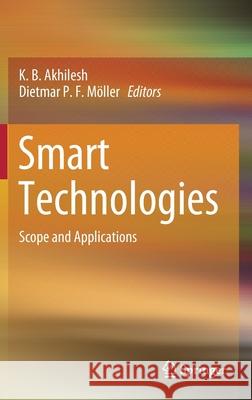Smart Technologies: Scope and Applications » książka
topmenu
Smart Technologies: Scope and Applications
ISBN-13: 9789811371387 / Angielski / Twarda / 2019 / 405 str.
Kategorie:
Kategorie BISAC:
Wydawca:
Springer
Język:
Angielski
ISBN-13:
9789811371387
Rok wydania:
2019
Wydanie:
2020
Ilość stron:
405
Waga:
0.76 kg
Wymiary:
23.39 x 15.6 x 2.39
Oprawa:
Twarda
Wolumenów:
01
Dodatkowe informacje:
Wydanie ilustrowane











